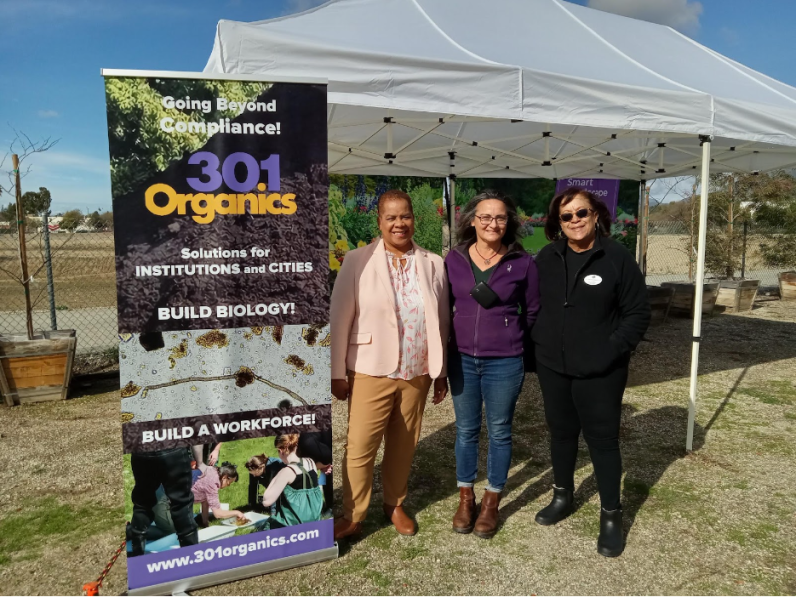
In an effort to combat climate change and promote environmental sustainability, California's SB 1383 initiative to reduce organic waste in landfills was signed into law in 2016. This landmark regulation mandates a significant reduction in organic waste disposal across the state. The legislation sets ambitious targets: a 50% reduction in organic waste disposal by 2020 and a 75% reduction by 2025. This mandate includes food waste, yard trimmings, paper products, and other organic materials that contribute to landfill mass and greenhouse gas emissions.
Currently, SB 1383 is in its enforcement phase, where fines are imposed for non-compliance with waste diversion regulations. This enforcement is crucial for ensuring that all entities adhere to the guidelines, thereby contributing to the reduction of greenhouse gas emissions and the promotion of sustainable waste management practices. The legislation has broad market implications, driving demand for effective organic waste diversion solutions and creating new opportunities for businesses specializing in sustainable waste management, like 301 Organics.
Municipalities face several challenges in adopting sustainable practices. One of the primary issues is the lack of composting and other food waste processing infrastructure statewide. Many municipalities still rely heavily on traditional waste-hauling methods and regional processing facilities, which are not only less sustainable but also more expensive in the long run. Transitioning to solutions that are local and more sustainable requires significant investment in communities, new local infrastructure, and advanced technologies, which many municipalities are hesitant to undertake due to budget constraints and existing contractual obligations with waste-hauling companies.
The demand for sustainable waste management solutions is rapidly increasing as businesses, institutions, and municipalities seek to comply with and avoid fines under regulations such as SB 1383 to achieve state greenhouse gas reduction goals. This market pull is driven by both environmental awareness and the tangible economic benefits that organic waste diversion and composting offer.
Adopting a local approach to composting and organic waste diversion practices can lead to significant cost savings not only for generators of organic waste but also for end users of recycled material, which are often one and the same. Think schools, golf courses, and event venues! These institutions produce food and green waste but also can use high-grade soil amendments like compost on their landscaping to protect the plants from drought and heat stress. Case in point, 301 Organics partnered with the Rose Bowl Stadium to develop and operate the city's first on-site composting operation, which showcased the economic and environmental benefits of organic waste diversion. The project involved processing all food waste generated during events at the stadium and producing high-quality compost used on the facility's rose garden, football field, and adjacent golf course.
By composting on-site, the stadium reduced its organic waste hauling and disposal costs, avoided landfill fees, and lowered the cost of chemical fertilizers merely by applying the finished compost instead to their rose gardens and stadium landscaping. Additionally, 301 Organics ensured that the compost produced was made by local area high school and college students and that they learned the importance of building healthy soil through composting from the food scraps patrons were discarding.
This successful implementation of composting and organic waste diversion demonstrates the potential for similar benefits across various sectors, including educational institutions, municipal parks, and agricultural operations. The market demand for sustainable waste management solutions is clear and driven by regulatory requirements, environmental awareness, and corporate sustainability goals.
By aligning its services with these mandates, such as SB 1383, 301 Organics positions itself as a vital partner for businesses and municipalities seeking to comply with stringent organic waste diversion requirements. This strategic alignment not only ensures compliance but also highlights the company's commitment to sustainability, attracting clients and investors who prioritize environmental responsibility alongside fiscal accountability.
The company utilizes its proven track record and deep expertise in organic waste management to attract a diverse clientele. Successful projects and partnerships with educational institutions and municipalities showcase 301 Organics' ability to deliver tailored, effective solutions. This credibility is crucial for market penetration, as potential clients are reassured by the company's demonstrated capabilities. Additionally, 301 Organics' comprehensive approach, which includes consultation, equipment provision, and on-site management, differentiates it from competitors who may offer more limited services. 301 Organics is a one-stop shop for true closed-loop cycling of resources.
301 Organics is ambitiously planning to scale its operations and production capabilities with a vision of entering new markets. Recognizing the growing demand for sustainable waste and landscape management solutions, the company aims to expand its footprint in regions with regulatory frameworks similar to California's. In February, the company hosted an open house at Crown Valley Nursery to showcase a new composting system designed for nurseries and school campuses. The event, which highlighted the company's innovative solutions, was attended by approximately 30 local residents, city councilman Gene Masuda, and notable figures such as Ann Marie Hickambottom, district staff liaison to Assemblyman Chris Holden, and former Pasadena Police Lieutenant Phlunte' Riddle.
As 301 Organics continues to grow and innovate, it remains dedicated to providing high-quality, sustainable solutions that benefit the environment and the economy. With a clear vision for the future, 301 Organics is poised to continue being a leader in the organic waste management industry. To find out more, visit www.301organics.com.







Join the Conversation